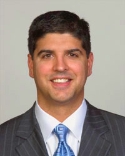A recent case decided Feb. 10 has the nursing home industry and plaintiff malpractice attorneys clamoring over whether certain measures taken by nursing homes during the pandemic should be immune from plaintiff negligence lawsuits against nursing homes. (See Garcia et al v. Welltower OpCo Group LLC, et al).
In Garcia, the complaint accuses defendants of failing to take adequate measures to prevent the spread of COVID-19. The case was filed by the sons of a deceased facility resident. The court ruled that the plaintiff could not criticize the infection control, personal protective equipment and other coronavirus prevention measures taken by the facility because it was deemed a “Covered Person” under the federal Public Readiness and Emergency Preparedness Act (PREP) and was, therefore, afforded immunity for undertaking those “countermeasures” during the pandemic.
Conflicting PREP Immunity Case
Previously, in October 2020, a federal court issued an opinion that greatly limited federal immunity protections for nursing homes in the case of Sherod v. Comprehensive Healthcare Management Services LLC. In Sherod, Brighton Rehabilitation and Wellness Center could not claim preemption and federal immunity under PREP against a housekeeper’s COVID-19 wrongful death suit against the nursing home.
PREP provides immunity from liability under state and federal law to a “covered person” for losses related to the use of “countermeasures” during a declared public health emergency. PREP immunity is not new, as it has been used for immunity protection in response to Zika, Ebola, pandemic influenza, botulinum toxin, smallpox, acute radiation syndrome, and anthrax. While the facility claimed that a nursing home is considered a covered person under PREP, Sherod held the estate’s allegations didn’t fall within the purview of PREP’s immunity because the plaintiff’s alleged claims were premised on the nursing home’s failure to provide countermeasures rather than countermeasures that were used by the facility that may have failed.
Plaintiff Loopholes?
Sherod shed light on an apparent loophole plaintiffs have utilized to avoid PREP immunity. The loophole is utilized when plaintiffs allege that an employer failed to use appropriate countermeasures without focusing on the employer’s actual use of the countermeasures to get around application of PREP immunity.
Notably, Sherod applied this loophole and a federal judge in the Western District of Pennsylvania ruled in favor of the plaintiff. U.S. District Judge Arthur J. Schwab found that PREP didn’t apply and didn’t provide immunity to the facility. Sherod showed how immunity will protect nursing homes from, for example, faulty test kits used, but may not remove liability if employers fail to use proper COVID-19 countermeasures.
Relief for Facilities Coming?
Now, Garcia, filed in a different federal court, ruled in favor of an assisted living facility and has granted immunity to a facility, against a plaintiff who claimed the assisted living facility took inadequate safety measures against coronavirus.
In Garcia, the court paid deference to two significant HHS advisory opinions on PREP. Under these two opinions, HHS made clear that even a nursing home’s failure to act as part of a program plan to combat COVID could be part of a reasoned countermeasure that would afford a facility complete immunity under PREP. The court basically sided with HHS’s own interpretation, respecting the agency’s interpretation of PREP immunity among the facilities.
Garcia and Sherod demonstrate the fundamental difference between courts and their view of the culpability of long-term care facilities during the pandemic. On one hand, Sherod holds facilities to a higher standard, claiming that even despite the lack of understanding of COVID-19, nursing homes should know be er and take more stringent precautions to prevent infection and should be liable for their failure to do so.
The more recent Garcia case, however, demonstrates the opposite view, surprisingly supported by HHS, that nursing homes shouldn’t be held to an unreasonable standard of protection when li le was known about the pandemic, when resources and PPE were scarce to protect staff and residents, and when nursing homes are trying their best to prevent infections.
Time will tell which interpretation of PREP immunity will carry the day as more PREP cases are decided, perhaps leading up to a U.S. Supreme Court interpretation to determine the fate of nursing homes during the pandemic.
Neville M. Bilimoria is a partner in the Health Law Practice Group, in the Chicago office of Duane Morris.
Reprinted with permission of Chicago Lawyer.








